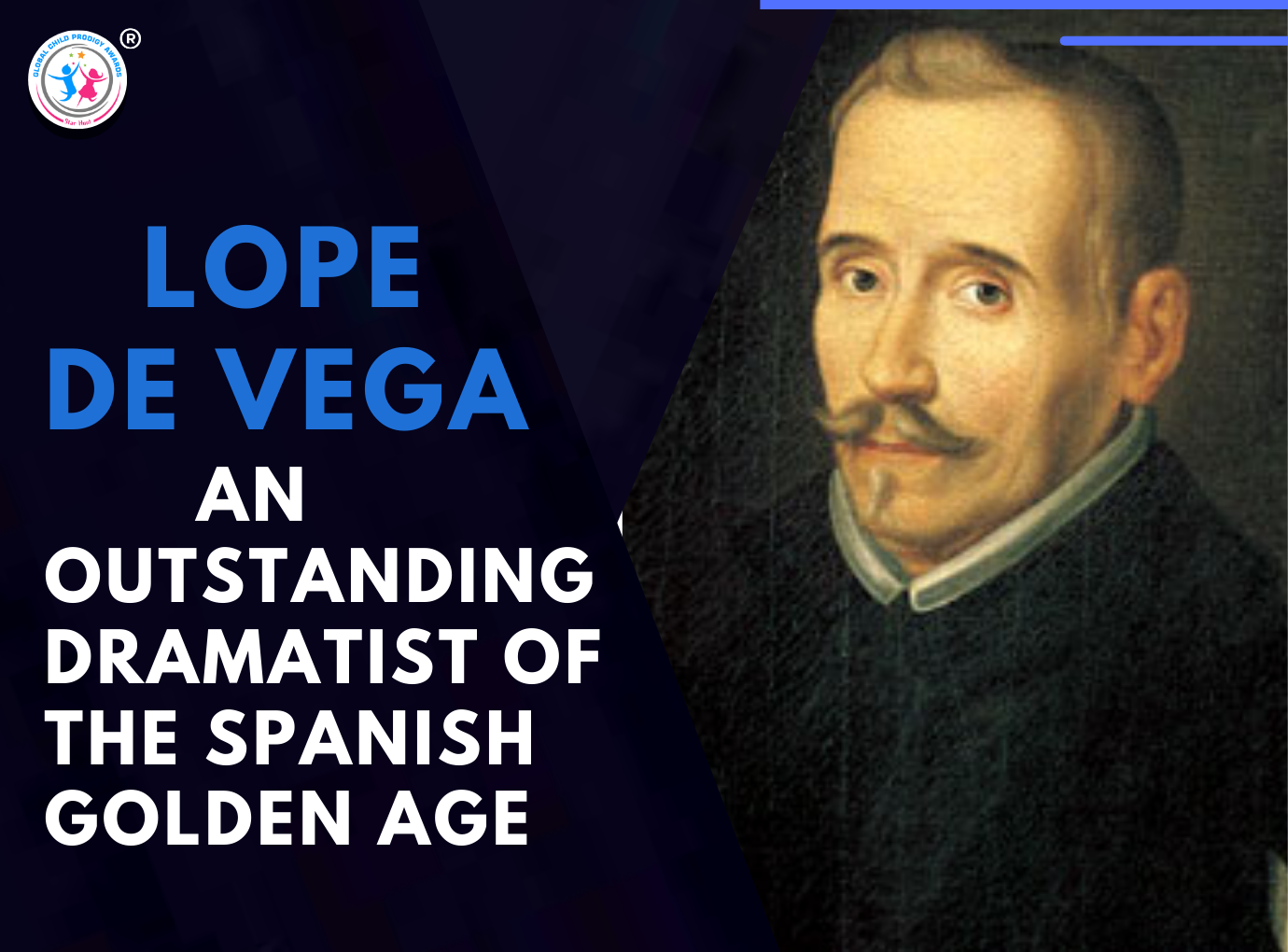Lope Félix de Vega Carpio, aka Lope de Vega, was born on Nov. 25, 1562, in Madrid. He was an outstanding dramatist of the Spanish Golden Age and the author of as many as 1,800 plays and several hundred shorter skits, of which 431 plays and 50 morsels are enduring. He marked his name as one of the most acceptable child prodigies with his creative writings.
Early life

Lope de Vega was the second son and third child of Francisca Fernandez Flores and Félix de Vega, a knitter. He learned Latin and Castilian between 1572–73 by the poet Vicente Espinel. The coming year he set foot in the Jesuit Imperial College, where he learned the elements of mankind and compassion. Enthral by his talent and grace, the bishop of Ávila took him to the Alcalá de Henares in 1577 to analyze for monasticism, but Vega soon left the Alcala.
On his father’s demise in 1578, the extortion store departed to the husband of one of the poet’s sisters, Isabel del Carpio. Vega later took on the noble name of Carpio to give an elegant voice to his own. He acquired a liberalistic education from his abounding through slapdash readings in the perceptive compilation. In 1583 he participated in the Spanish expedition contrary to the Azores.
By that time, Vega established himself as a screenwriter in Madrid and was living from his fortnights. He also practiced an unexplained role as gentleman attendant or secretary to several nobles, adapting his role as a servant with the situation accordingly. Afterward, he engaged in writing ballads, which later became a popular style.
In 1590 he was appointed as a secretary to the duke of Alba, whom he stuck to Toledo and then to the ducal estate at Alba de Tormes, where his wife died in childbirth in 1595.
He cast away the duke’s service in 1595, and in 1598 he went to the home of the marqués de Sarriá, with whom he remained until 1600.
Height Of Arcane Productiveness
From 1605 until his death, he carried on as confidential secretary and consultant to the duke of Sessa, with whom he maintained a copious and disclosing resemblance.
In 1608. he found himself dead duck position with the cross-questioning and then prosecuting attorney of the Missionary Chamber. Vega, by then, was a renowned bard and already contemplated as the “phoenix of Spanish wits.” In 1609, Vega propagated Arte nuevo de hacer, a poetic exposition .In 1610, in a mid of total contemporary production of his 500 comedies, Vega shifted from Toledo to Madrid.
Important Works

“La Dorotea”
“All Citizens Are Soldiers”
“New Art of Writing Plays in This Time”
“La corona trágica.”
“Laurel de Apolo”
Life in Madrid and Death
The sufferings moved the poet to intense despair. In 1609 he entered the first of various dutiful orders. He wrote almost complete godly works, though he also continued his theatrical work, which was financially necessary. In 1614 he entered the priesthood, but continued service as secretary and panderer to his patron, the duke of Sessa. He obstructed him from acquiring the pastoral benefits he looked for. The duke thus permanently recuperated his secretary. All his journey was astonishing for everyone as he introduced such wonderful skits at a remarkable age. His folding years were full of dejection. He died in Madrid in August 1635.
Also read: Kim Ung-Yong a former child prodigy

Team GCP Awards is a group of passionate writers dedicated to covering everything from parenting, education, and child development to global achievements, innovation, and awards. From the Global Child Prodigy Awards to insightful stories that inform and inspire, we cover it all.
Search our blogs too for expert insights, updates, and inspiring stories from around the world

